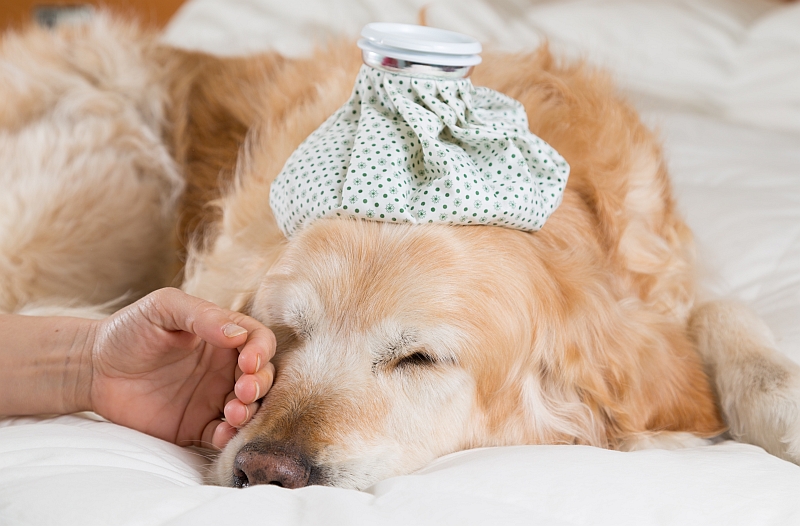It is no fun to have an ailing pet suffering indoors for weeks on end. No pet owner likes to see his dog or cat have to lay still while recovering from a surgery, allowing a bone to heal, or working through a debilitating disease. However, there are many ways you can make his or her experience more comfortable while their body is mending. Here are some must-do pet care tips for animals that are convalescing at home.
Establish a restful place. No matter where your pet usually sleeps, it will be important to find a place where he will be close by you and easy to keep an eye on should you be needed in any way. Some pet parents like to keep their dog or cat next to the desk in their home office, or in the kitchen so that if something is wrong, they will notice. Though you will want to keep your pup close, make sure they are not going to get underfoot, or have any potential to be tripped over or hurt in any way.
Minimize noise. Sudden sounds can be jarring for most pets in general, but when they are sick, in pain or unable to defend themselves, loud noises can actually give cats and dogs high levels of stress and anxiety. Try to position the healing bed some place in the house that is calm and quiet. If you happen to live in a noisy neighborhood or above a busy street, consider choosing a place near a source that makes white noise (such as dish washing machine, or a laundry room, or a bedroom with a fan) to drown out the hubbub.
Stick to a consistent schedule. Routines help bring order in times when the hours seem long and your pet needs as much peace and stability as possible. If you can, try to feed at the same times during the day, and consistently find time for petting and comforting your dog or cat. This will help them cope with the current situation, and will also help you anticipate when you will need to help transport them outside to eliminate, based on what time they have eaten.
Feed a balanced diet with lots of vitamins. Animals (like humans) heal much faster when their bodies are given the best nutrition to aid their recovery. You might want to give your dog lots of treats, but keep the sweets at a minimum. If your pet is having a rough time eating, or struggling to have the energy or motivation, try feeding them in smaller amounts, or adding some more aromatic savory items (such as tuna or salmon etc.) to the food bowl.
Continue regular grooming. Toe-nail clipping and tooth brushing might seem of secondary and tertiary importance when your pet has greater health issues to be concerned with, but this is not the case. Keeping your pet in good health is easy to do when their hygiene is prioritized. If you are consistent about brushing their teeth, wiping their ears, skin creases and eyes, and brushing their coats, etc. it will help guard against any bacteria from growing. Dental health is particularly important, since the dog or cat will not have the opportunity to flush out toxins through rigorous exercise, as they normally would have. Keeping their mouths clean will also help their internal organs stay as healthy as possible. The last thing you want to do while your pet is recovering from ailment is to encourage the start of another.
Aid circulation. Since your pet will not be able to participate in his normal schedule of playing or going on long walks, his movement and exercise will be greatly limited. This is not necessarily a bad thing, especially if the pet has had a spinal, joint or bone injury. But it is important to help keep their circulation and blood flow healthy and intact as much as you can. This can be accomplished by massaging and brushing them, etc. This practice is extremely vital, since it also affords more bonding time together when a pet will feel particularly lonely or emotionally needy. Having you close by, and attending to his needs will be a great comfort to your fur-baby in his days of restoration.
Follow instructions to the letter. If your dog or cat was prescribed certain medications or has bandages that need to be cleaned and rebound from time to time, make sure you have clear instructions from your vet, and follow them exactly. Even if something does not seem logical to you at the time, trust that you may not have all the details or the understanding why something must be done a certain way. Your pet needs the best provision he can receive even if something seems off or a task feels laborious to you. If you have doubts, the veterinarian office is only a phone call away, but the pet’s wellness is most important and should be the priority.

